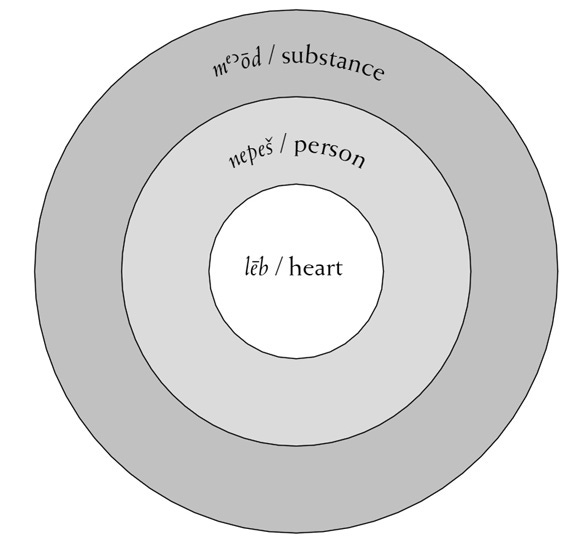Reason #2: Forgetting the purpose
Getting stuck in the what of quiet times, and forgetting the why.
Photo by Mark Fletcher-Brown on Unsplash
If someone asked you, “What’s the purpose of your quiet time?” - what would you say?
I can easily explain what I do (read the Bible, pray), but sometimes fumble when asked why.
That missing purpose is often a reason that our quiet times feel flat. A routine without a reason quickly becomes a rut - and quiet times are no exception.
For years I’d missed this bigger purpose. One that reshapes not just a daily devotional routine, but my whole life.
What is the purpose?
If you were to look for the purpose of quiet times in Scripture, where would you start? I’ve landed on the shema:1
Hear O Israel: the LORD our God, the LORD is one. Love the LORD your God with all your heart and with all your soul and with all your strength. (Deuteronomy 6:4-5)
In these words, Moses captures the heart of Israel’s relationship with God. Centuries later, when Jesus was asked which commandment mattered most, this is what he chose. As we dig into them, they reveal something profound about the purpose of our quiet times..
“Hear O Israel…”
God’s people are summoned by him, to hear his word. God reveals himself in Scripture so that we might “hear ever anew the voice of God, for it remains the inspired Word of God.”2 Each day when we open the Bible, we’re pausing to hear the voice of our Creator and our King speak to us.
“…the LORD our God, the LORD is one.”
He is the LORD - the only God in the universe, supreme above all, incomparable, the one and only. As Daniel Block describes it, this is a “cry of allegiance”, a declaration of “complete, undivided and unqualified devotion to Yahweh”.3 In a world filled with competing gods and shifting loyalties, God’s people are called to love and serve him alone (Deut 5:6-10).
“Love”
As we read the Bible, we see again and again the many ways God has shown his love - in creation, in his daily provision, in his patience with humanity, and supremely in his Son (Eph 2:4-5).
The right response? To love in return, with the love he first showed us (1 John 4:19). In Deuteronomy, “love” is used again and again to describe the covenant relationship with God. It’s deeply relational, like a marriage.
This might surprise us, as we often talk about quiet times in terms of duty or discipline. But at its heart, this daily rhythm is about communion, nurturing the relationship and love we already have in Christ (Eph 3:17b-19).
Photo by Jamie Street on Unsplash
“… the Lord your God…”
Our love for God grows as we come to know more of who he is - Father, Son and Holy Spirit. Each glimpse of his glory, majesty, gentleness, patience, faithfulness and goodness draws us to respond in prayer, praise, thanksgiving and worship.
This knowledge isn’t just information. It’s awe that lifts our hearts - both glorifying God and delighting in all that he is.4
This is now a Christ-centred knowledge of God. As we look to the New Testament for references to the shema, we see the apostle Paul add in the name of Christ:
There is but one God, the Father, from whom all things came and for whom we live; and there is but one Lord, Jesus Christ, through whom all things came and through whom we live. (1 Corinthians 8:6)
He is the one who bridges the gap between God and us, making true knowledge of God possible.
As we see God’s holiness more clearly, we see our own sinfulness, leading to confession - an essential step in knowing God more deeply (Isa 6:1-5; Luke 5:8). Our natural response to God is often resistance and rebellion. We rely on Christ and the Spirit to continually open our minds to understand the Scriptures (Luke 24:45).
“ …with all your heart and with all your soul and with all your strength.”
Our love for God is not weak or superficial, easily swayed by circumstances or shaped by Hallmark movies. As Daniel Block observes:
Calling all Israelites to love God without reservation or qualification, Moses begins with the inner being, then moves to the whole person, and ends with all that one claims as one’s own.5
This unreserved commitment begins with the heart and extends to all of life - home, public spaces and everything in between:
These commandments that I give you today are to be on your hearts. Impress them on your children. Talk about them when you sit at home and when you walk along the road, when you lie down and when you get up. Tie them as symbols on your hands and bind them on your foreheads. Write them on the doorframes of your houses and on your gates. (Deuteronomy 6:6-9)
Our love for God involves diligent remembrance of his commands, heartfelt repetition and an eagerness to speak openly about our faith. And, as we see both in Deuteronomy and Jesus’ teaching, it’s a love that shows itself in active obedience to God (Deut 11:1; Jn 14:23-24).
A new vision for ‘quiet times’
Can you hear how this goes far beyond a brief time with God each day? It’s about worshipping God with our whole lives.
We keep the purpose in mind
When we spend time with God, we will start with why before moving to what. Our quiet time isn’t just a task, it’s a means of growing a deeper, richer relationship with God. Reading these verses at the start can reset our focus - reminding us of God’s generous love for us and stirring our own wholehearted love in response.
We savour time with the Lord
If we ate only once a day, we’d make it a feast not a snack. How much more with God’s Word? Let’s not unintentionally reduce the richness of our relationship to shallow ‘fast food’ spirituality. Instead let’s enjoy an unhurried, nourishing time that deepens our connection with God.
We connect these truths to the whole of life
We store up Scripture in our hearts, letting it shape our thoughts, decisions and actions throughout the day. These truths then become woven into everything in our homes, conversations and relationships - the heartbeat of our lives as God’s people. We treasure, obey and live them.
The Bible doesn’t talk about a ‘quiet time’ but calls us to love God wholeheartedly, to obey him fully, to worship him as King of the universe in every part of life. Let’s keep this bigger purpose in mind when we meet with God each day.
These verses are named the shema after the first word, which in Hebrew means “hear” or “obey.”
Berkhof, Louis, Systematic Theology (1996: Eerdmans), Kindle ed., location 3236.
Block, Daniel, The NIV Application Commentary: Deuteronomy (2012: Zondervan), p. 182.
Westminster Shorter Catechism - Q. 1. What is the chief end of man? A. Man’s chief end is to glorify God, and to enjoy him for ever.
Block, pp. 183-5.




So true! And thanks for the reminder.